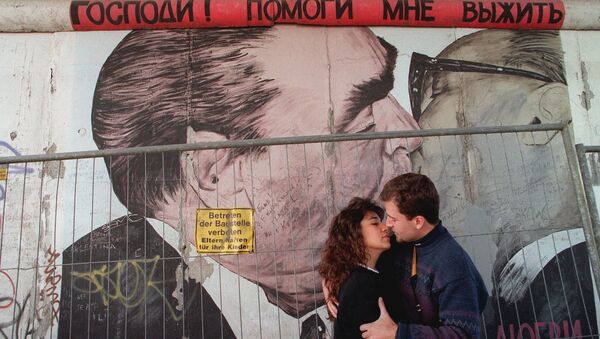Heads of the regional governments in the former East German states of Brandenburg, Saxony, Thuringia, and Saxony-Anhalt have demanded that Russia be invited back to what was the Group of Eight prior to the events in Crimea and Ukraine, the German outlet Die Welt reports. According to the newspaper, they are pushing for a fresh start in dialogue with Moscow, which broke down in 2014.
Saxony’s Prime Minister Michael Kretschmer, representing Angela Merkel’s Christian Democratic Union, insisted that keeping silence has never helped in times of crisis.
"I do not want to give any advice to the participants of the G7 meeting. But the more formats there are to speak with Russia, the better”, he told the outlet, noting that this was the reason why he invited Russian President Vladimir Putin to visit his state during his trip to St Petersburg.
Kretschmer noted that when it comes to relations with Russia, the eastern parts of Germany are more sensitive than the western ones. According to him, Moscow’s isolation and the sanctions against it would not be well received in eastern Germany.
Thuringia’s Prime Minister Bodo Ramelow, representing the left-wing party Die Linke, echoed his stance, supporting a dialog. Although he noted that excluding Russia from the then-G8 was correct at the time, he also pointed out that sanctions have hardly improved the situation. Ramelow added that reviving the G8 would be a sign of “sovereignty and political foresight". At the same time, he criticised "the negative effects of the ‘America First’ ideology of the American president", branding it “a risk for the prosperous world economic development", arguing that it weakens international relations.
Prime Minister of Brandenburg Dietmar Woidke, who is a member of the Social Democrats, told Die Welt that “Europe and the US need as much dialogue with Russia as possible” following the termination of the INF Treaty.
“We should look each other in the eye and talk. There must be a basis of trust again… It would be good if Russia provides the conditions for its return to the G7/G8”, he said, adding that the crucial factor is starting to implement the Minsk Agreement.
The head of Saxony-Anhalt’s government, the CDU’s Reiner Haseloff, also expressed hope that Russia would return to diplomatic talks. He emphasised that sanctions are particularly harmful to eastern Germany’s economy and especially to medium-sized companies, noting that they had not led to a noticeable improvement in the situation in Ukraine.
Vice-Chair of the German Bundestag Wolfgang Kubicki, from the Free Democratic Party, also spoke in favour of inviting Russia back.
"Only by talking do we clearly identify and understand problems and differences as well as hopefully push Moscow to return to international law as a next step", he told the outlet.
At the same time, Germany’s Foreign Minister Heiko Maas has rejected these demands: "G7 and G8 depend on the progress in Crimea and eastern Ukraine, and as long as nothing changes there, there will be no movement on the issue".
Before the current G7 summit in the French city of Biarritz began, Donald Trump had backed French President Emmanuel Macron's proposal to invite Russia to the next G7 summit in the US in 2020, saying that Russia should return to what used to be the G8.
While some countries, like Japan, are open to the idea, others, like Canada, remain stridently opposed to it. As Donald Trump noted during his talks with Japanese Prime Minister Shinzo Abe at the summit, there is “a number of people who would like to see Russia back”.
“I think it would be advantageous to many things in the world. It's something that we're discussing. I don't know that we'll make a decision one way or the other, but we did have a discussion about Russia last night”, he said.
On Sunday morning he also noted it's “certainly possible” that Russian President Vladimir Putin would be invited to the grand gathering next year.
In his turn, Putin said earlier this week that his country would regard any form of dialogue with the G7 nations as useful.
The G8 format was in place from 1998-2014, but was reduced to the G7 due to disagreements with Russia regarding the events in Crimea and Ukraine. The G7 has accused Moscow of interfering in Ukraine’s domestic affairs and introduced sanctions against Russia as a result; however, Moscow has rejected the accusations, stressing that Crimea reunited with Russia following a legitimate referendum.
As for the unrest in eastern Ukraine, Moscow has repeatedly stated that it is not a participant in the conflict in Donbass, but one of the four parties of the Normandy format - which also includes Germany, France and Ukraine – and has emphasised Kiev’s reluctance to implement important parts of the Minsk agreements, which include adopting reforms related to the status of the eastern regions.


